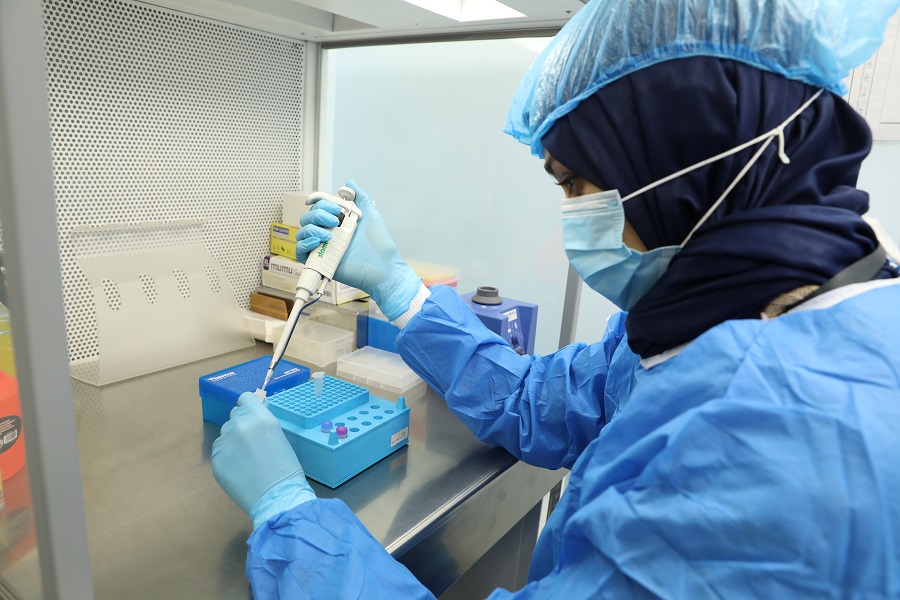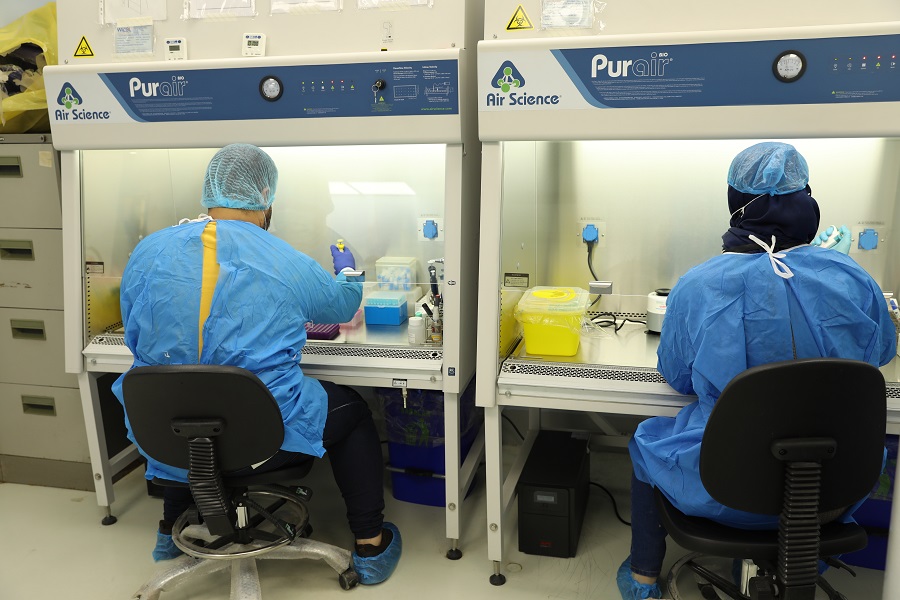 The diagnostic kits aim to build the diagnostic capacity of the central laboratory in Iraq. Credit: WHO/ Mustafa Al-Tameemi
The diagnostic kits aim to build the diagnostic capacity of the central laboratory in Iraq. Credit: WHO/ Mustafa Al-Tameemi
Baghdad, 16 January 2023 — The World Health Organization (WHO) has delivered essential laboratory equipment and diagnostic kits to the Central Public Health Laboratory in Baghdad to support efforts to control the ongoing Crimean-Congo haemorrhagic fever outbreak and detect other viral haemorrhagic fevers.
The equipment and kits, valued at approximately US$ 93 000, came as part of the WHO strategy to build the diagnostic capacity of the central laboratory in Iraq and ensure timely and reliable testing to curb and manage the eventual resurgence of a Crimean-Congo haemorrhagic fever outbreak. It also aimed to enhance the early detection of other infectious hazards that might cause haemorrhagic fevers, such as Rift Valley fever and dengue.
"The recent Crimean-Congo haemorrhagic fever outbreak in Iraq demonstrated the importance of laboratory services for early detection and confirmation of suspect cases, paving the way for an effective response," said Dr Ahmed Zouiten, WHO Representative in Iraq.
"Upgrading the central laboratory capacities will not only allow for prompt preparation and response to outbreaks but will also enable the health sector in Iraq to play a crucial role in scientific research on viral haemorrhagic fevers."
As of 31 December 2022, Iraq reported 380 laboratory-confirmed cases and 74 deaths, with Thi Qar governorate reporting around 43% of cases. However, the cases of Crimean-Congo haemorrhagic fever have declined over the past weeks in Iraq.
 The laboratory equipment and diagnostic kits are also delivered to enhance the early detection of other infectious hazards that might cause hemorrhagic fevers. Credit: WHO/ Mustafa Al-Tameemi
The laboratory equipment and diagnostic kits are also delivered to enhance the early detection of other infectious hazards that might cause hemorrhagic fevers. Credit: WHO/ Mustafa Al-Tameemi
In 2022, WHO worked closely with the Ministry of Health to build and deploy joint rapid response teams from the health and agriculture sectors to control the outbreak. WHO also aimed to strengthen the diagnostic capacity of hospitals, train health workers to strengthen their capacity for adequate case management and enhance epidemiological investigation and surveillance to detect and respond to cases as early as possible.
In addition, WHO and the Ministry of Health scaled up risk communication and community engagement activities to raise the awareness of the general public and target vulnerable groups and communities, reaching the most impacted areas in the southern governorates and delivering messages to the communities. Butchers, households, and animal traders were also among the high-risk groups that were approached.
"Even with a significant decline in Crimean-Congo haemorrhagic fever cases, there is no room for complacency. We need to remain vigilant and work with the Ministry of Health and other stakeholders to increase capacities to detect, confirm, and control eventual outbreaks," Dr Zouiten added.


